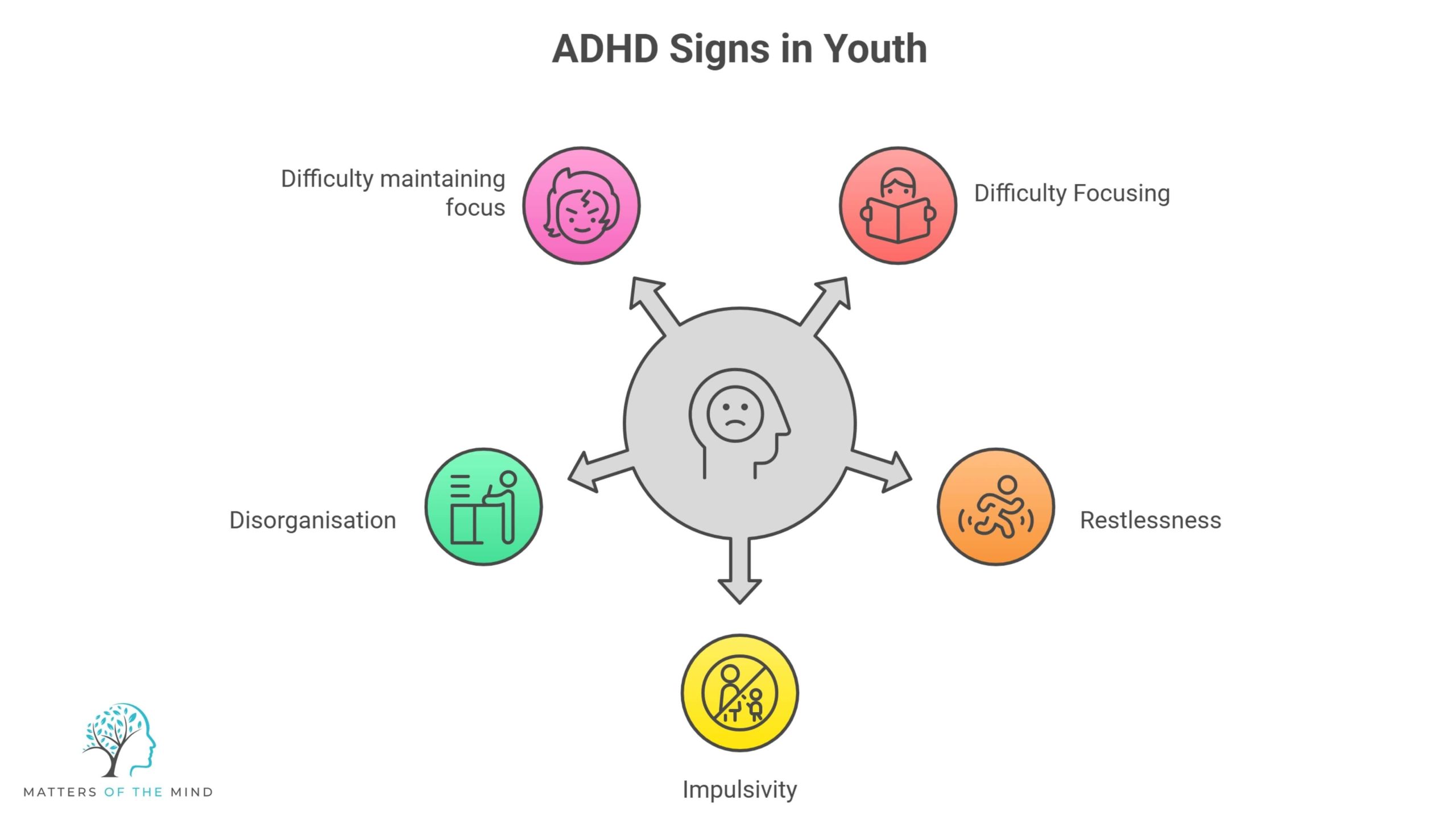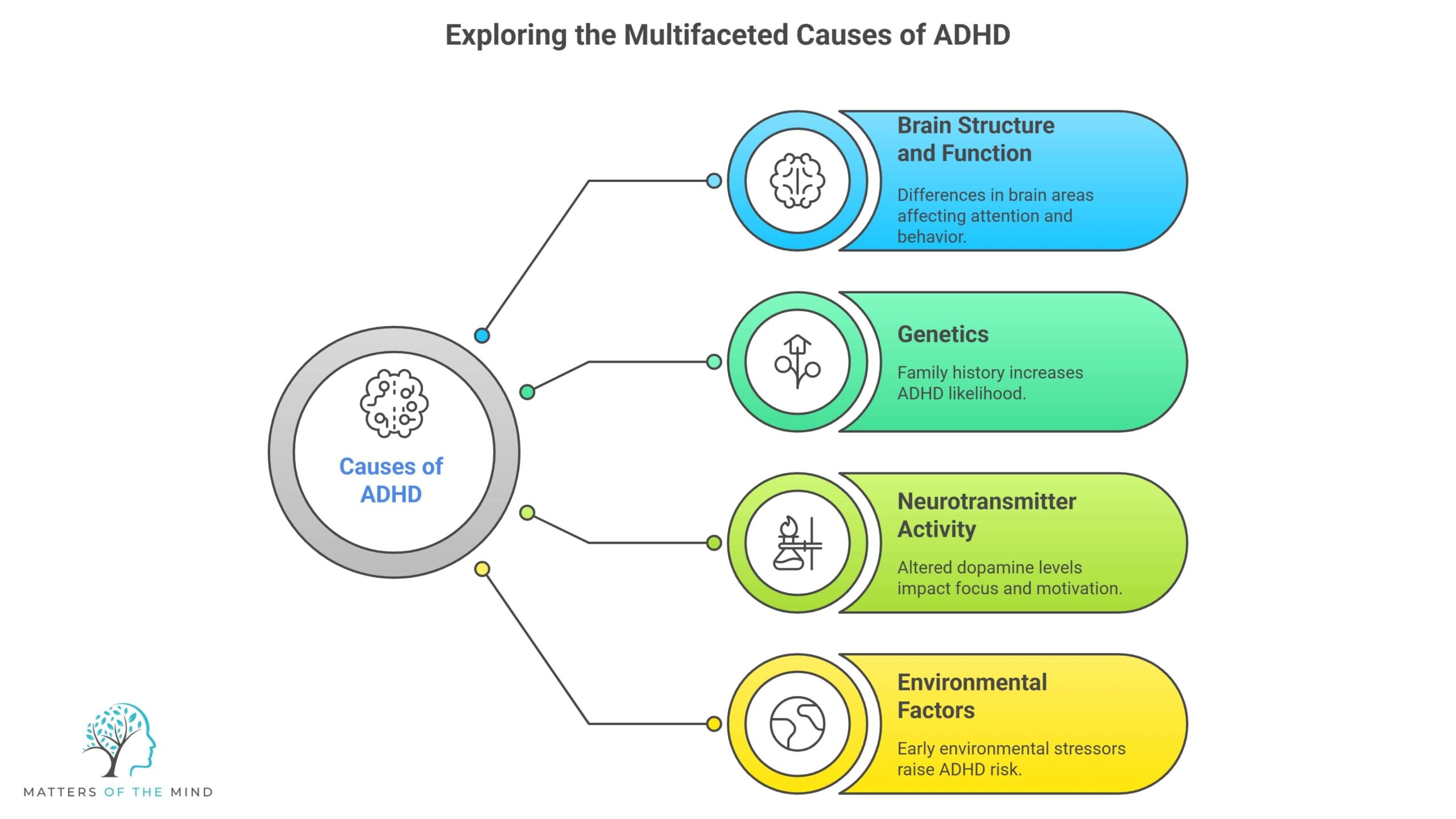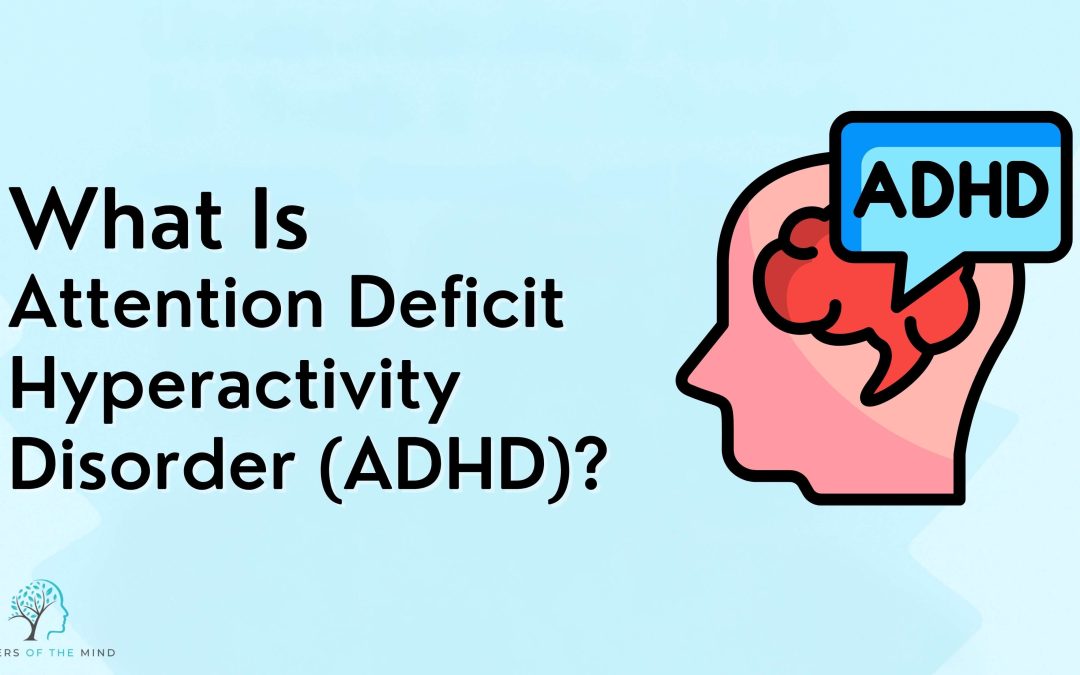In the competitive world, staying focused and organised can feel like a challenge. From juggling studies and work to balancing social and personal responsibilities, many people find themselves distracted, restless, or struggling to keep up. While lack of attention is a normal part of life, for some individuals, these challenges are more persistent and disruptive. This is where understanding Attention Deficit Hyperactivity Disorder (ADHD) becomes important.
ADHD is more than just occasional forgetfulness or bursts of energy; it is a condition that shapes how the brain processes attention, activity, and self-control. Understanding ADHD is important not only because of its impact on daily functioning but also because of the strengths and unique perspectives it can bring when managed effectively.
In this blog, we’ll delve deeper into what ADHD is, common signs, and how it affects adulthood. Let’s start.
What is ADHD?
Attention-deficit hyperactivity disorder (ADHD) is often perceived as a condition affecting children, but its impact continues well into youth and adulthood. Many young people find themselves struggling with challenges they cannot quite explain. It includes difficulty focusing, restlessness, and impulsive decisions that disrupt daily life. For some, these difficulties may have been present since earlier years but only become more noticeable as academic, social, and personal responsibilities grow.
ADHD is not just about being distracted or overly energetic. It is a recognised neurodevelopmental condition that influences the way the brain manages attention, activity levels, and self-control. Understanding this in the context of young adulthood is important because this stage of life demands independence, goal-setting, and decision-making, areas where ADHD symptoms can have a significant impact if not managed properly.
Common Signs of ADHD in Youth
ADHD presents differently for everyone, but some patterns are frequently observed in young adults:

- Difficulty maintaining focus: Struggling to complete tasks, losing track of conversations, or needing frequent reminders.
- Restlessness and hyperactivity: An internal sense of being “on the go,” fidgeting, or finding it hard to relax.
- Impulsivity: Making quick decisions without considering consequences, interrupting others, or having difficulty waiting.
- Disorganisation: Challenges in managing time, keeping track of responsibilities, or planning ahead.
- Emotional regulation issues: Experiencing frustration, irritability, or mood swings more intensely than peers.
How ADHD Affects Adulthood Too
Unlike childhood, where structures are often set by parents and teachers, young adulthood brings new layers of responsibility. Deadlines, job performance, financial management, and forming relationships all require sustained focus, organisation, and regulation of emotions.
For someone with ADHD, these demands feel challenging. Missed deadlines, struggling to stay engaged during meetings, or appearing forgetful can affect academic and professional performance. In social life, impulsivity or emotional reactivity may cause misunderstandings, leading to feelings of isolation.
However, recognising ADHD is not about highlighting limitations; it’s about understanding the brain’s unique way of working and finding strategies to thrive.
What Causes ADHD
The exact cause of ADHD is not fully understood, but experts agree that it results from a mix of biological, neurological, and environmental influences. Some of the key factors include:

- Brain structure and function
Research shows differences in how certain areas of the brain that control attention, planning, and impulse regulation develop and function in people with ADHD. These variations affect the ability to stay focused and manage behavior. - Genetics
ADHD often runs in families. If a close family member has ADHD or a similar attention-related difficulty, there may be a higher likelihood of experiencing it as well. - Neurotransmitter Activity
Brain chemicals like dopamine, which play a major role in motivation and focus, may work differently in individuals with ADHD, making it harder to regulate attention and impulses. - Environmental factors
Certain influences, such as exposure to stress, toxins, or other environmental challenges during early development, can also contribute to the risk of ADHD.
It’s important to understand that ADHD is not caused by poor parenting, laziness, or lack of willpower. Instead, it is a condition rooted in how the brain develops and functions.
Strengths Often Seen in ADHD
While the challenges of ADHD are real, many young adults also discover unique strengths:
- Creativity and innovation: Thinking outside of the box, generating fresh ideas.
- High energy levels: When ADHD is channeled effectively, this energy can fuel ambition and productivity.
- Hyperfocus: The ability to become deeply absorbed in tasks of interest.
- Resilience: Navigating challenges often builds adaptability and determination.
Acknowledging these strengths alongside difficulties can create a more balanced perspective and encourage self-compassion.
Effective Strategies to Manage ADHD
Living with ADHD does not mean life has to be defined by struggle. With the right approaches, young adults can learn to manage symptoms and unlock their potential. Some of the strategies include:
- Structured routines: Using planners, apps, or reminders to stay organised.
- Mindfulness practices: Techniques like meditation or breathing exercises to manage restlessness and improve focus.
- Healthy lifestyle choices: Prioritising sleep, exercise, and balanced nutrition.
- Breaking tasks into steps: Reducing overwhelm by working on goals in smaller parts.
- Support systems: Open communication with family, friends, or mentors who understand and provide engagement.
Professional support is also an important option, offering tailored strategies for managing ADHD effectively.
Final Thoughts
Living with ADHD in youth can feel overwhelming at times, especially when the demands of studies, work, and relationships begin to grow. But ADHD does not define a person; it is simply one aspect of how the brain functions. With awareness, supportive strategies, and the right guidance, young adults can learn to manage symptoms, build confidence, and embrace their strengths.
What truly matters is recognising the signs early and taking steps to address them, rather than dismissing them as mere distractions or restlessness. ADHD may bring challenges, but it also brings unique qualities: creativity, energy, and resilience, which can be powerful assets when nurtured.
If you notice that difficulties with focus, impulsivity, or organisation are affecting daily life, remember that help is available. Reaching out for support is not a weakness, but a step toward building a healthier, more balanced future.
Struggling with ADHD?
Get personalised support with Dr Kavita Deepak-Knights
📍Windsor, Berkshire.


